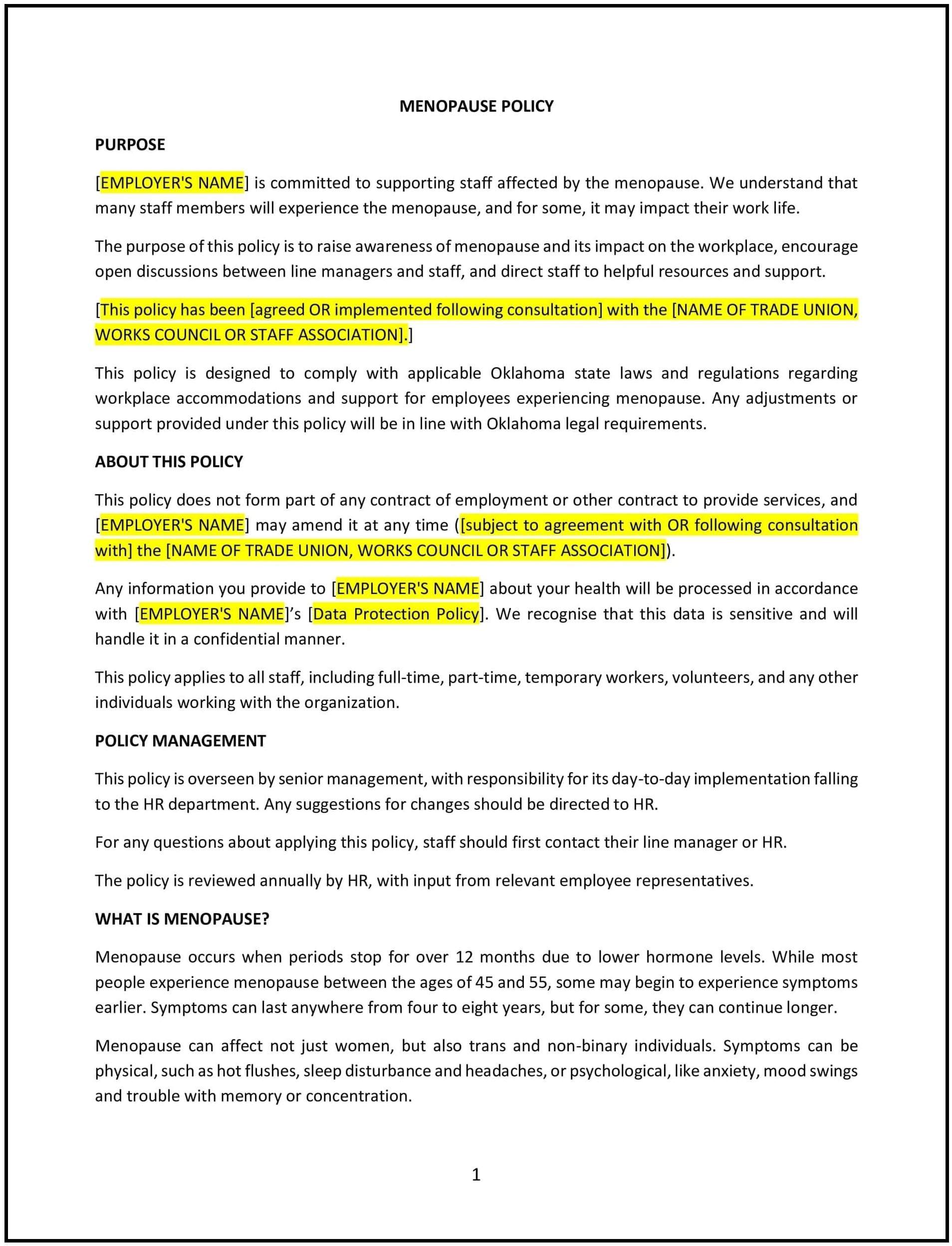Got contracts to review? While you're here for policies, let Cobrief make contract review effortless—start your free review now.

Customize this template for free
Menopause policy (Oklahoma)
This menopause policy is designed to help Oklahoma businesses support employees experiencing menopause by providing accommodations, resources, and a supportive work environment. It outlines procedures for requesting adjustments and promotes awareness and understanding of menopause-related challenges.
By adopting this policy, businesses can enhance employee well-being, improve retention, and foster an inclusive workplace culture.
How to use this menopause policy (Oklahoma)
- Define scope: Explain what menopause is and how it may impact employees, including symptoms like hot flashes, fatigue, or difficulty concentrating.
- Establish accommodations: Provide examples of reasonable adjustments, such as flexible work hours, access to cooling fans, or private rest areas.
- Outline request procedures: Describe how employees can request accommodations, including whom to contact and required documentation.
- Promote awareness: Include guidelines for educating managers and staff about menopause to reduce stigma and foster empathy.
- Train managers: Educate supervisors on handling accommodation requests with sensitivity and confidentiality.
- Review and update: Assess the policy annually to ensure it aligns with evolving workplace needs and employee expectations.
Benefits of using this menopause policy (Oklahoma)
This policy offers several advantages for Oklahoma businesses:
- Enhances well-being: Supports employees experiencing menopause, improving their comfort and productivity.
- Improves retention: Demonstrates a commitment to employee health and inclusivity, boosting loyalty and reducing turnover.
- Fosters inclusivity: Creates a supportive environment where employees feel valued and understood.
- Reduces stigma: Promotes awareness and understanding of menopause, encouraging open dialogue.
- Builds trust: Shows employees that the business cares about their health and well-being.
Tips for using this menopause policy (Oklahoma)
- Communicate clearly: Ensure all employees understand the policy and the support available.
- Provide training: Educate managers on handling accommodation requests with sensitivity and confidentiality.
- Encourage openness: Foster a culture where employees feel comfortable discussing their needs.
- Monitor effectiveness: Track accommodation requests and feedback to identify areas for improvement.
- Update regularly: Review the policy annually to ensure it remains effective and aligned with employee needs.